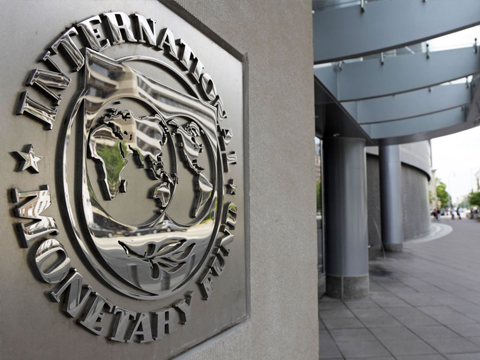IMF's sad forecasts not real for Azerbaijan

By Aynur Karimova
Growth in the Caucasus and Central Asia is expected to decline by 2 percent this year as a result of lower commodity prices and Russia's economic slowdown, read the latest regional forecast by IMF.
The Regional Economic Outlook Update for the Caucasus and Central Asia, released on May 19, predicts that growth in the region will reach just over 3 percent this year.
IMF experts believe that the twin shocks of Russia's economic slowdown - a key trading partner, and lower oil prices have taken a toll on the region. Exchange rate developments such as the appreciation of the U.S. dollar and the depreciation of the ruble have compounded the problem.
However, Azerbaijani experts do not agree with such conclusions. Expert Ogtay Hagverdiyev told local media that IMF analysts have made an incorrect conclusion.
"Azerbaijan is not strongly dependent on the financial stability of Russia," he said. "Today, if to speak about large amounts, Azerbaijan imports only Russian weapons, and on the export side, we have not reduced the supplies of agricultural products to Russia. Of course, all the processes happening in neighboring countries negatively affect us, but they are indirect problems."
Migration expert Azer Allahveranov believes that despite close trade relations, Azerbaijani economy does not depend on Russia. "Even the devaluation of the Russian ruble will hardly affect our economy in the long-term," he added.
"Russia's problems will hit Central Asia and Armenia, as the GDP of these countries closely depends on the Northern Giant's economy," he noted.
Fiscal consolidation needed for oil exporters
IMF experts predict that oil and gas exporters’ external position will weaken sharply in 2015. The region's oil and gas exporting countries -- Azerbaijan, Kazakhstan, Turkmenistan, and Uzbekistan -- should see growth decline to 3.5 percent in 2015 from 5.5 percent last year.
Given that many of the oil and gas exporters cannot balance their budgets at currently projected prices, IMF experts recommend these countries consider taking steps toward fiscal consolidation as soon as conditions allow, rebuilding buffers, strengthening fiscal sustainability, and sharing natural resource wealth with future generations.
The current economic environment in the Caucasus and Central Asia is proving difficult for banks due to pressures from multiple sources over financial systems.
The IMF report noted that banking supervisors will need to intensify surveillance of financial systems in the region, adding that crisis management frameworks should be strengthened.
The report also suggests that greater exchange rate flexibility would be needed to help the region’s economies absorb shocks, retain competitiveness in the face of exchange rate pressures, and prevent a drain on reserves.
As for the region’s medium-term prospects, bold structural reforms will be vital. Policy-makers should intensify efforts to enhance the business environment, improve governance, and diversify economies away from their reliance on commodity exports and remittances, the IMF said.
--
Aynur Karimova is AzerNews’ staff journalist, follow her on
Twitter: @Aynur_Karimova
Follow us on Twitter @AzerNewsAz
Here we are to serve you with news right now. It does not cost much, but worth your attention.
Choose to support open, independent, quality journalism and subscribe on a monthly basis.
By subscribing to our online newspaper, you can have full digital access to all news, analysis, and much more.
You can also follow AzerNEWS on Twitter @AzerNewsAz or Facebook @AzerNewsNewspaper
Thank you!
